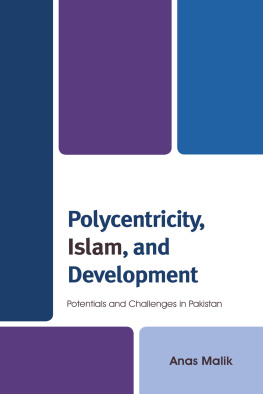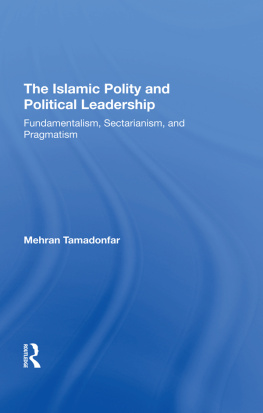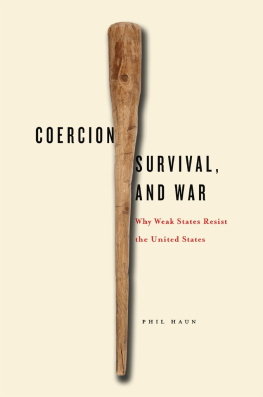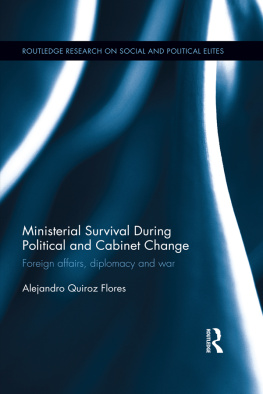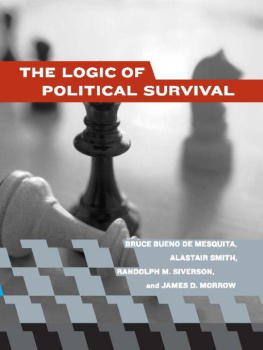Political Survival in Pakistan
Presenting a framework that incorporates macro forces into micro-level strategic calculations by key agents, this book explains key political choices by leaders and challengers in Pakistan through the political survival mechanism. It offers an explanation for continuing polity weakness in the country, and describes how political survival shapes the choices made by the leaders and challengers.
Using a unique analysis that synthesizes theories of weak states, quasi-states and political survival, the book extends beyond the rationalist accounts and the application of choice-theoretical approaches to developing countries. It challenges the focus on ideology and suggests that diverse, religiously and ethnically defined affinity groups have interests that are represented in particular ways in weak state circumstances. Extensive interviews with decision-makers and polity-participants, as well as narrative accounts, allow the author to examine leaders decision-making in a state bureaucratic machinery context and the complex mechanisms by which dissident affinity groups may support quasi-state options. This study can be used for comparisons in Islamic contexts, and presents an interesting contribution to studies on South Asia as well as Political Theory.
Anas Malik is a political scientist at Xavier University, USA. His research interests include the political economy of development and political Islam, with a focus on South Asia and the Middle East.
Routledge advances in South Asian studies
Edited by Subrata K. Mitra
South Asia Institute, University of Heidelberg, Germany
South Asia, with its burgeoning, ethnically diverse population, soaring economies, and nuclear weapons, is an increasingly important region in the global context. The series, which builds on this complex, dynamic and volatile area, features innovative and original research on the region as a whole or on the countries. Its scope extends to scholarly works drawing on history, politics, development studies, sociology and economics of individual countries from the region as well those that take an interdisciplinary and comparative approach to the area as a whole or to a comparison of two or more countries from this region. In terms of theory and method, rather than basing itself on any one orthodoxy, the series draws broadly on the insights germane to area studies, as well as the tool kit of the social sciences in general, emphasizing comparison, the analysis of the structure and processes, and the application of qualitative and quantitative methods. The series welcomes submissions from established authors in the field as well as from young authors who have recently completed their doctoral dissertations.
1. Perception, Politics and Security in South Asia
The Compound Crisis of 1990
P.R. Chari, Pervaiz Iqbal Cheema and Stephen Philip Cohen
2. Coalition Politics and Hindu Nationalism
Edited by Katharine Adeney and Lawrence Saez
3. The Puzzle of Indias Governance
Culture, context and comparative theory
Subrata K. Mitra
4. Indias Nuclear Bomb and National Security
Karsten Frey
5. Starvation and Indias Democracy
Dan Banik
6. Parliamentary Control and Government Accountability in South Asia
A comparative analysis of Bangladesh, India and Sri Lanka
Taiabur Rahman
7. Political Mobilisation and Democracy in India
States of emergency
Vernon Hewitt
8. Military Control in Pakistan
The parallel state
Mazhar Aziz
9. Sikh Nationalism and Identity in a Global Age
Giorgio Shani
10. The Tibetan Government-in-Exile
Politics at large
Stephanie Roemer
11. Trade Policy, Inequality and Performance in Indian Manufacturing
Kunal Sen
12. Democracy and Party Systems in Developing Countries
A comparative study
Clemens Spiess
13. War and Nationalism in South Asia
The Indian state and the Nagas
Marcus Franke
14. The Politics of Social Exclusion in India
Democracy at the crossroads
Edited by Harihar Bhattacharyya, Partha Sarka and Angshuman Kar
15. Party System Change in South India
Political entrepreneurs, patterns and processes
Andrew Wyatt
16. Dispossession and Resistance in India
The river and the rage
Alf Gunvald Nilsen
17. The Construction of History and Nationalism in India
Textbooks, controversies and politics
Sylvie Guichard
18. Political Survival in Pakistan
Beyond ideology
Anas Malik
First published 2011
by Routledge
2 Park Square, Milton Park, Abingdon, Oxon OX14 4RN
Simultaneously published in the USA and Canada
by Routledge
270 Madison Avenue, New York, NY 10016
Routledge is an imprint of the Taylor & Francis Group, an informa business
This edition published in the Taylor & Francis e-Library, 2010.
To purchase your own copy of this or any of Taylor & Francis or Routledges collection of thousands of eBooks please go to www.eBookstore.tandf.co.uk.
2011 Anas Malik
All rights reserved. No part of this book may be reprinted or reproduced or
utilised in any form or by any electronic, mechanical, or other means,
now known or hereafter invented, including photocopying and recording,
or in any information storage or retrieval system, without permission in
writing from the publishers.
British Library Cataloguing in Publication Data
A catalogue record for this book is available from the British Library
Library of Congress Cataloging in Publication Data
Malik, Anas.
Political survival in Pakistan : beyond ideology / Anas Malik.
p. cm. -- (Routledge advances in South Asian studies ; 18)
Includes bibliographical references and index.
1. Political culture--Pakistan. 2. Pakistan--Politics and government--1988
I. Title.
JQ629.A91M35 2010
306.2095491--dc22
2010012726
ISBN 0-203-84222-7 Master e-book ISBN
ISBN 978-0-415-77924-1 (hbk)
ISBN 978-0-203-84222-5 (ebk)


